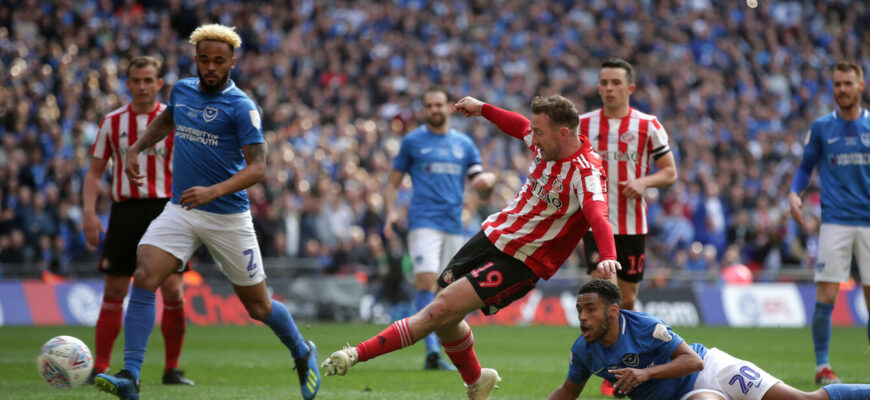In the summer of 2007, striker David Nugent became the subject of a £6 million transfer battle between Sunderland and Portsmouth. While Portsmouth ultimately secured his signature, Sunderland may have been secretly pleased they missed out, given how events unfolded.
Sunderland had recently been promoted back to the Premier League for the 2007/08 season, following a swift return from the Championship where they finished as champions after a difficult previous spell in the top flight. Strengthening their attack was a key priority for the Black Cats.
Nugent, who had impressed by scoring fifteen goals for Preston North End in the Championship the previous season, seemed like an ideal candidate to bolster their Premier League firepower.
The Battle for Nugent`s Signature
However, Sunderland faced significant competition for the striker from Portsmouth. Pompey, managed by Harry Redknapp, had just finished 9th in the Premier League but were looking to improve their goalscoring record, and they matched Sunderland`s reported £6 million bid for Nugent.
Nugent ultimately chose a move to Fratton Park. Yet, this proved to be a decision Portsmouth might later regret, as issues between the striker and manager Harry Redknapp reportedly emerged quickly.
Despite scoring on his debut in the League Cup in August, reports surfaced that Nugent was already being considered surplus to requirements by the end of that month. Redknapp even publicly stated, “Sometimes when you are trying to raise money you have to sell someone you don`t really want to sell. That could be David, but it could be others.”
Nugent`s Struggles and Sunderland`s Success
Despite the early uncertainty, Nugent remained at Portsmouth, but his struggles in the Premier League continued. He failed to score in 15 top-flight appearances during the 2007/08 season.
Ironically, his first league goal for Portsmouth didn`t arrive until January 2009, coming against his former manager Harry Redknapp, who had by then moved to Tottenham Hotspur, in a 1-1 draw.
However, this proved to be one of only three Premier League goals he scored for Pompey. He was subsequently loaned to Burnley and, across four full seasons playing in the top flight with various clubs, managed a modest total of just 14 goals.
Meanwhile, Sunderland thrived without Nugent. They invested a similar fee, reportedly £6 million plus Stern John, to sign Kenwyne Jones from Southampton. Jones proved to be a far more successful acquisition on Wearside, scoring 26 goals in 94 Premier League appearances for the Black Cats before a lucrative club-record transfer to Stoke City in 2010.
Sunderland clearly came out on top in their respective transfer dealings that summer. While Nugent went on to become a well-regarded player in the Championship, he never consistently performed at the highest level in the Premier League.
Remarkably, his sole appearance and goal for the England national team came while he was still a Championship player at Preston in March 2007. With one goal in just 11 minutes played, he holds the record for the shortest senior international career for an England goalscorer.
The differing fortunes of the clubs also continued; Portsmouth faced severe financial difficulties and were relegated from the Premier League in 2010, while Sunderland managed to maintain their top-flight status until 2017.
Looking back at how events unfolded, Sunderland can undoubtedly feel they narrowly avoided a costly mistake by missing out on signing David Nugent in the summer of 2007.









